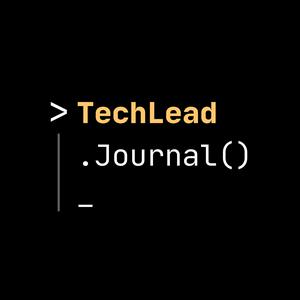(05:13) Brought to you by Sweep AI
Sweep is the fastest coding assistant for JetBrains. It lets you write code 10x faster. Finally, AI that works in JetBrains. Download for free at sweep.dev.
What if Southeast Asia had its own ChatGPT that cost 20x less? Bruce Yang built Agnes AI to solve what global companies ignore: accessible AI for emerging markets.
In this episode, Bruce Yang, CEO and founder of Agnes AI, explains how he’s built Southeast Asia’s fastest-growing AI platform with 4 million registered users and 300K daily active users. After working at Microsoft and LinkedIn in Silicon Valley, Bruce returned to Singapore and started his PhD at NUS right before COVID, positioning him perfectly to ride the AI wave. Agnes AI uses smaller, specialized models trained on Southeast Asian languages and local user data to deliver productivity features like deep research, PowerPoint generation, and AI-powered group chats at 1/20th the cost of major competitors. We discuss the challenges of building AI for emerging markets, the importance of keeping humans in the loop for critical thinking, and why Bruce believes the future of AI belongs to applications, not just models.
Key topics discussed:
Making AI 20x cheaper than ChatGPT
Why Southeast Asia needs its own AI models
Using multi-agent systems to reduce hallucinations
AI group chats and social features
Critical thinking in an AI-assisted world
Why Agnes avoids the AI coding space
AI bubble debate: hype vs. real value
Getting emerging markets to adopt AI
Subscription vs. pay-per-use business models
Timestamps:
(00:00:00) Trailer & Intro
(00:02:49) Why Did Bruce Start a PhD During COVID to Build an AI Company?
(00:06:16) Why Build Another AI Model When Thousands Already Exist?
(00:09:48) How Is Agnes AI Cheaper and Faster Than ChatGPT?
(00:14:00) Does Agnes AI Support Southeast Asian Languages and Cultures?
(00:15:34) How Does Agnes AI Handle Local Languages Better Than Global Models?
(00:17:57) How Does Agnes AI Reduce Hallucinations?
(00:20:03) What Can Agnes AI Do That ChatGPT Cannot?
(00:25:31) Why Is AI in Group Chats the Next Big Thing?
(00:29:18) How Does Agnes AI Keep Your Private Group Conversations Secure?
(00:31:41) Will AI Make Us Lose Our Critical Thinking Skills?
(00:37:43) Should Children Use AI for Schoolwork?
(00:40:27) Can Agnes AI Help With Coding Like Cursor?
(00:43:07) Will Everyone Host Their Own AI Model in the Future?
(00:47:39) Is AI a Bubble or Real Economic Transformation?
(00:51:01) How Can Southeast Asians Start Using AI Today?
(00:53:56) What Are Real-World Examples of People Using Agnes AI?
(00:57:30) How Does Agnes AI Make Money While Offering Free Features?
(01:01:19) 3 Tech Lead Wisdom
_____
Bruce Yang’s Bio
Bruce Yang is the founder and CEO of Agnes AI, a consumer AI platform making intelligence more collaborative, creative, and accessible. A Raffles Institution graduate, he studied Math and Computer Science at UC Berkeley, earned a Master’s from HEC Paris, and is pursuing a PhD at NUS. He previously worked at Microsoft and LinkedIn in Silicon Valley.
Agnes AI redefines how people interact with AI through group chats, AI-assisted games, real-time content creation, slides generation, and research tools. Bruce envisions AI as a shared experience that amplifies human creativity and collaboration, enhancing rather than replacing human thinking and imagination.
Follow Bruce:
LinkedIn – linkedin.com/in/tongbruceyang
Agnes AI - https://agnes-ai.com/
Email –
[email protected]Like this episode?
Show notes & transcript: techleadjournal.dev/episodes/246.
Follow @techleadjournal on LinkedIn, Twitter, and Instagram.
Buy me a coffee or become a patron.


